ZONISAMIDE - ORAL
PHONETIC PRONUNCIATION: (zoh-NISS-uh-mide)
COMMON BRAND NAME(S): Zonegran
GENERIC NAME(S): zonisamide
Uses
USES: Zonisamide is used with other medications to prevent and control seizures (epilepsy). Zonisamide is a sulfonamide anticonvulsant and a carbonic anhydrase inhibitor. It is unknown how zonisamide works to prevent seizures.
How to use ZONISAMIDE - ORAL
HOW TO USE: Read the Medication Guide provided by your pharmacist before you start taking zonisamide and each time you get a refill. If you have any questions, consult your doctor or pharmacist. Take this medication by mouth as directed by your doctor, usually 1 to 2 times a day with or without food. Swallow the capsules whole. To prevent kidney stones from forming, drink plenty of liquids while taking this medication unless your doctor instructs you otherwise. Dosage is based on your medical condition and response to treatment. It is very important to follow your doctor's dosing instructions exactly. Your doctor will start you on a low dose and slowly increase your dose. It may take several weeks or months to reach the best dose for you and to get the full benefit from this medication. Use this medication regularly to get the most benefit from it. This drug works best when the amount of medicine in your body is kept at a constant level. To help you remember and to keep a constant level, take zonisamide at the same time(s) each day. Do not stop taking this medication without consulting your doctor. Some conditions may become worse when the drug is suddenly stopped. Your dose may need to be gradually decreased. Tell your doctor if your condition does not improve or if it worsens.
Side Effects
Precautions
Interactions
Overdose
Images
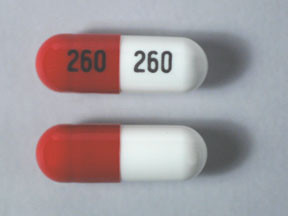
- color
- swedish orange
- shape
- oblong
- imprint
- 260, 260

- color
- swedish orange
- shape
- oblong
- imprint
- 260, 260
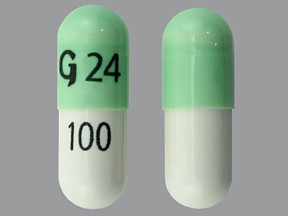
- color
- light green
- shape
- oblong
- imprint
- G 24, 100

- color
- light green
- shape
- oblong
- imprint
- G 24, 100
Reviews
Faq for ZONISAMIDE - ORAL
Zonisamide is an oral medication used to treat certain types of seizures in people with epilepsy. It can also be prescribed as an add-on therapy for seizures that are not adequately controlled by other antiepileptic drugs.
Zonisamide works by stabilizing electrical activity in the brain, reducing abnormal hyperexcitability that can lead to seizures. It may affect various neurotransmitters and ion channels to achieve its anticonvulsant effects.
The most common side effects of zonisamide include drowsiness, dizziness, loss of appetite, weight loss, headache, nausea, and difficulty with coordination. These side effects are usually mild and improve as the body adjusts to the medication.
Zonisamide is usually taken by mouth once or twice a day, with or without food. It is important to follow the dosing instructions provided by your doctor or pharmacist. Swallow the capsules whole; do not crush or chew them.
Yes, zonisamide can interact with other medications. It is important to inform your doctor about all the medications and supplements you are taking to avoid any harmful drug interactions. Some common drugs that may interact with zonisamide include certain antidepressants, antiepileptic drugs, and carbonic anhydrase inhibitors.
Zonisamide may take several weeks to reach its full effectiveness. Your doctor will monitor your response to the medication and may adjust the dosage if necessary. It is important to continue taking zonisamide as directed, even if you do not experience immediate improvement in seizure control.
Zonisamide may pose risks to a developing fetus, so it is important to discuss the potential benefits and risks with your doctor if you are pregnant or planning to become pregnant. Your doctor may recommend alternative medications or adjust your treatment plan accordingly.
Zonisamide can rarely cause allergic reactions, such as rash, itching, swelling, severe dizziness, or difficulty breathing. If you experience any allergic symptoms, seek immediate medical attention.
If you miss a dose of zonisamide, take it as soon as you remember. However, if it is close to the next scheduled dose, skip the missed dose and resume your regular dosing schedule. Do not double the dose to catch up.
Disclaimer
IMPORTANT: HOW TO USE THIS INFORMATION: This is a summary and does NOT have all possible information about this product. This information does not assure that this product is safe, effective, or appropriate for you. This information is not individual medical advice and does not substitute for the advice of your health care professional. Always ask your health care professional for complete information about this product and your specific health needs.
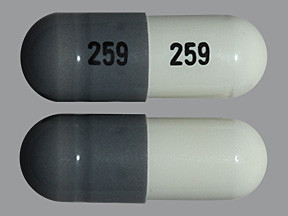
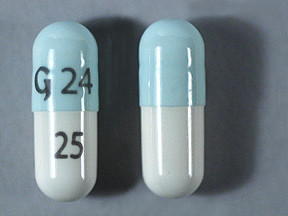
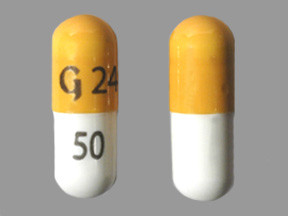
No Reviews Yet